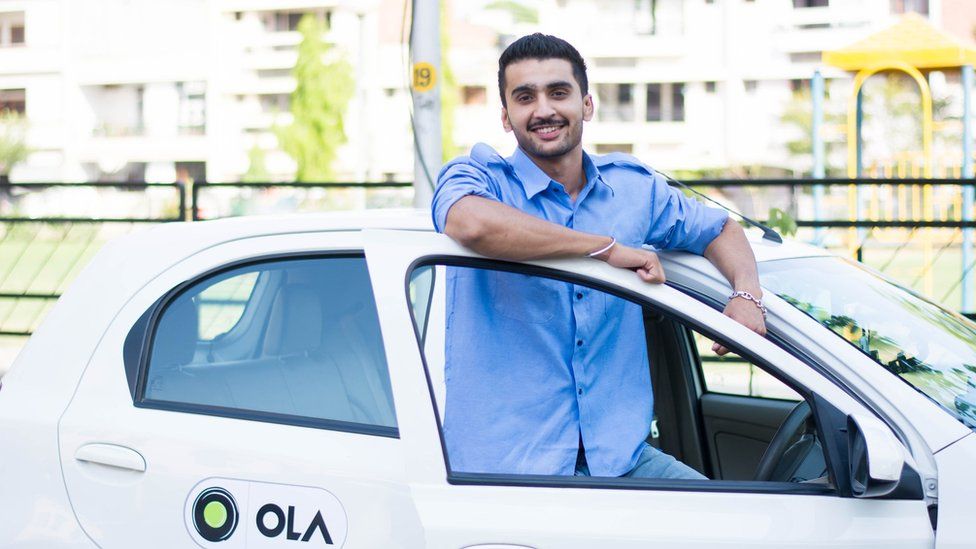Taxi-hailing firm Ola starts operating in Wales
- Published
- comments

Indian taxi-hailing giant Ola begins operating in the UK on Monday.
The company, a challenge to taxi app giant Uber, has launched in south Wales ahead of Greater Manchester.
As Ola launches in Cardiff, Newport and the Vale of Glamorgan, local taxi drivers said there were concerns over licensing and safety.
The firm was founded in 2011 and Ola's UK boss Ben Legg says his company will pay drivers more money than Uber and is "focussed" on passenger safety.
Ola previously operated in two countries after adding Australia to its Indian operation earlier this year and the UK will be its third.
The company said it hoped to expand across the UK by the end of 2018.
Ola, which has 125 million customers in 110 cities around the world, said it would be the only ride-hailing app in south Wales to offer customers the option of private hire vehicles and black taxis on one platform.
Mr Legg, Ola UK's managing director, claimed his firm will pay drivers more money, offer work to licensed taxi drivers, provide "much better safety" and work more alongside local government.
Uber told a court earlier this year it accepted its London operating licence should not have been renewed in 2017 but said there has been "wholesale change" since then.
Concerns about Uber sparked a call to strengthen standards governing the sector in Wales in October.
Mr Legg said the Ola app had features which allow passengers to alert police and loved ones at the touch of a button.
"Our approach is very much focussed passengers feeling safe. If something goes wrong it can be de-escalated and resolved quickly," Mr Legg said, adding that 20% of drivers were licensed.
Although drivers are reminded to take a break every two hours, Mr Legg conceded that because the drivers were self-employed, this was just a "firm recommendation".
This move is the first serious challenge in the UK to market-leading taxi-hailing app Uber, which was founded two years earlier than Ola, has three million drivers and operates in 600 cities in 65 countries.
But some taxi drivers urged caution, claiming there were concerns over drivers working outside of areas they are familiar with, and that Ola had not addressed safety issues.
"Drivers will be turning up in parts of south Wales that they will have no knowledge of," said Mike Moore, owner of A2B Taxis in the Vale of Glamorgan.
Mr Moore added: "I worry about the checks that are going to be put in place - how do they know it is that driver driving that vehicle? How do they know it is that vehicle?"
And Paul O'Hara, of the Cardiff professional drivers' branch of the GMB union, said that while Uber had "raised the standard" of customer service in the industry, the technology was not new.
"Without a doubt, Uber has affected local companies. These apps haven't reinvented the wheel," he said.
"Private hire has been a well respected business here for a long time. Uber and Ola have come a long thinking they have the new technology, but the local companies have had their apps running before Uber and Ola."
- Published7 August 2018
- Published30 January 2018
- Published2 January 2018
- Published16 October 2017